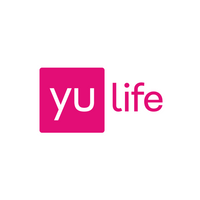5 things you didn’t know about the employee assistance programme – and it’s critical role in 2022
Mental health has never been more recognised as an issue in the health and productivity of employees: its link to physical and financial health is broadly acknowledged. But how has the long-adopted employee assistance programme (EAP) industry adapted to the changing workplace practices?
Stephen Galliano, clinical psychologist and chief customer officer at Workplace Options, says that since the pandemic, EAPs have evolved – and is a more essential support service than ever. He gives some valuable insight into how, when and why it’s being used by employees.
The provider of YuLife’s EAP service YuMatter, Workplace Options offers a broader suite of preventative as well as treatment solutions to more than 7 million employees to combat the ‘mental health crisis’.
Here, we share Stephen’s five things you may not know about EAP, and its value in 2022.
1. EAPs are a modern service
EAPs came into existence in the early 1920s – during the prohibition era in the US, to support people with alcohol and drug problems. The service as it exists today only developed in the 1980s and 1990s.
2. People typically reach out with mental health issues – but not exclusively
“About 65% of all of our calls are typically mental-health related and usually result in counselling in one form or another,” says Galliano.
“But we are trying to broaden the appeal of the EAP, so that people don’t just see it as a last resort. We encourage people to call us not because they have a mental health issue, but because they’re concerned that they are under some sort of pressure. And if that were to continue, it could evolve into a mental health problem: sleeping difficulties, or an inability to disconnect from work life over the weekends.”
3. Covid-19 accelerated the shift to technology solutions
“Before Covid, I’d say that 90% of counselling was done in person,” says Galliano. “Now I would say only 10% to 15% is done in person, and the remainder is done either via video or via the telephone.”
4. Covid-19 increased reliance on services – and that’s here to stay
Workplace Options, one of the world’s largest EAP providers, saw a spike in calls to its service centres during the pandemic. “It was very noticeable in the first six months – I think we saw a spike of between 20% and 30% in the number of calls that we were receiving. We are getting 600,000 calls a year. So 30% of that is quite a sizable increase.” says Galliano.
“Most of the calls that we were receiving, certainly during that first lockdown, were almost entirely related to lockdown pressures – anxiety, depression, people for whom the lockdown circumstances had triggered all exacerbated pre-existing conditions. But also a lot of people who didn’t have any pre-existing conditions, but who found the whole lockdown process and the social isolation very challenging.”
5. Engagement levels correlate to how well an EAP is communicated
“In the UK, we will see something in the range of 3-4% to 6-7% engaging with EAP services, depending on the sector,” says Galliano. “And in some cases up to 10-12%. The level of engagement that we see from our clients is driven very much by how well the programme is promoted and understood by employees of the organisations that we’re serving.”
To learn more about how you can drive engagement with your EAP, read the full interview with Stephen Galliano.
Supplied by REBA Associate Member, YuLife
YuLife is the first digital life insurance provider on a mission to inspire life.








